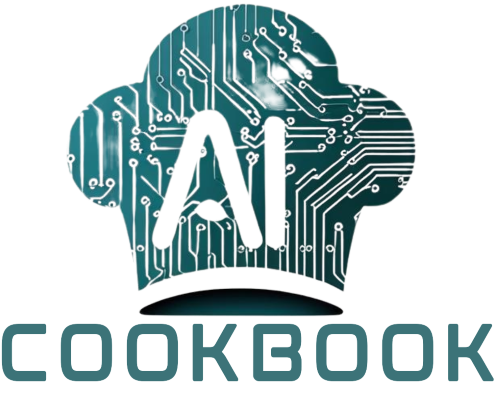Analysis of different potential uses of AI tools and applications in Migrant classes

Harnessing AI to Transform Migrant Education
This Work Package (WP2) explores how Artificial Intelligence can revolutionize learning for migrants by creating more effective, inclusive, and adaptive educational environments. Aligned with the DigCompEdu framework, we examine AI’s role across four key areas:
Resources AI-powered tools for personalised, culturally responsive learning materials
Teaching & Learning Adaptive technologies for tailored instruction
Assessment Automated and fair evaluation methods
Empowering Learners Fostering independence and digital literacy
This work intends to;
Analyse AI’s potential to enhance migrant education within DigCompEdu’s four pillars
Develop a practical AI engagement methodology for educators, NGOs, and support groups
Identify best practices & tools already making an impact in migrant learning
By bridging innovation with inclusivity, this initiative supports the broader mission to:
Enhance migrant education through AI-driven, learner-centered approaches
Empower educators with the skills and mindset to integrate AI effectively

Literature Review
The literature review explores AI applications in migrant education. It synthesizes academic and grey literature, case studies, policy frameworks, and technical documentation to provide a comprehensive understanding of how AI can enhance learning experiences for adult migrants.
Field Research
The field research gathered real-world insights on the use of AI in migrant education. Through interviews, surveys, observations, and focus groups, the study explored how educators, learners, and organisations experience AI tools in learning environments. These findings will inform the AI Cookbook, providing practical recommendations for AI integration in adult education.
Engagement Methodology
The AI Engagement Methodology for Migrant Education presents a 5 phase approach to integrating Artificial Intelligence technologies into educational programs supporting migrant and refugee learners. This methodology emerges from the recognition that migrant learners face unique challenges that require specialised, culturally sensitive, and ethically grounded educational interventions enhanced by AI technologies.
Inventory of Best Practices and Tools
An inventory that identifies and describes the best practices and AI tools currently being used in migrant education. This resource serves as a reference for educators and organisations looking to adopt AI solutions, providing examples of successful implementations, case studies, and evaluations of various AI applications’ effectiveness and impact on learning outcomes.
Summary of the findings;
The AI Cookbook project explores how artificial intelligence (AI) can support adult educators working with migrant learners, addressing digital transformation in education. By aligning with the European Framework for the Digital Competence of Educators (DigCompEdu), this initiative focuses on four key pedagogical areas: Resources, Teaching and Learning, Assessment, and Empowering Learners.
AI offers significant potential to enhance migrant education through personalised learning, adaptive content, and efficient assessment. However, its successful integration depends on addressing challenges such as teacher readiness, ethical concerns, and digital access disparities.
How AI Enhances Resource Development and Delivery for Migrant Education
AI transforms resource development by enabling the creation of adaptive, culturally relevant materials tailored to diverse learner needs. Tools like generative AI (e.g., ChatGPT) can:
– Generate multilingual texts, simplifying complex bureaucratic information (e.g., visa rules, healthcare access).
– Personalise assignments based on proficiency levels, ensuring accessibility for learners with varying literacy skills.
– Translate and localise content, bridging language gaps in multilingual classrooms.
For resource delivery, AI supports:
– Personalised learning pathways, adjusting content pacing to individual progress.
– Mobile-accessible platforms, ensuring continuity for learners with unstable internet access.
– Chatbots and conversational AI, providing instant support outside classroom hours.
Challenges include ensuring content accuracy, mitigating algorithmic bias, and addressing the digital divide. Teacher oversight remains crucial to verify AI-generated materials and maintain cultural sensitivity.
Most Effective AI Applications for Teaching and Learning in Migrant Contexts
AI applications with proven impact in migrant education include:
Conversational AI and Chatbots
– Tools like ChatGPT act as language practice partners, offering non-judgmental speaking/writing exercises.
Intelligent Tutoring Systems (ITS)
– Provide real-time feedback on language skills (e.g., pronunciation via Automatic Speech Recognition).
Machine Translation (MT) Tools
– Assist comprehension in multilingual classrooms (e.g., Google Translate for instant translations).
Generative AI for Content Creation
– Help teachers design culturally inclusive lesson plans and exercises efficiently.
Key considerations: AI should complement, not replace, human interaction. Educators must guide learners to use these tools critically, addressing over-reliance and ethical concerns.
Improving Assessment Processes for Migrant Learners with AI
AI enhances assessment by:
Automating grading for written assignments, providing instant feedback on grammar and structure.
Adaptive testing, adjusting question difficulty based on learner responses.
Identifying at-risk students through data analytics, enabling timely interventions.
However, challenges persist:
Bias in automated evaluations may disadvantage non-native speakers.
Distinguishing AI-assisted work from original student input requires clear guidelines.
Ethical data use is critical, particularly with sensitive migrant learner data.
Teachers must balance AI efficiency with human judgment, ensuring fair and meaningful assessments.
AI Tools That Empower Migrant Learners
To foster learner autonomy, the most effective tools include:
Self-paced adaptive platforms (e.g., Duolingo for language practice).
AI writing assistants (e.g., Grammarly) for independent skill development.
Mobile learning apps enabling flexible access for learners with work or family commitments.
Empowerment also hinges on AI literacy—teaching learners to critically evaluate AI outputs and use tools responsibly.
Competencies for Teachers Using AI in Digital Education
Educators need:
- Technical Proficiency– Using AI tools effectively.
- Pedagogical Integration – Aligning AI with teaching strategies.
- Ethical Awareness – Navigating bias, privacy, and transparency.
- Critical Evaluation – Assessing AI-generated content for accuracy.
Professional development programmes should address these competencies, ensuring teachers can harness AI’s potential while mitigating risks.
Engaging Teachers and Trainers in AI Adoption
Strategies to overcome scepticism and build confidence include:
Hands-on training demonstrating AI’s practical benefits (e.g., reducing administrative workload).
Peer collaboration to share best practices and troubleshoot challenges.
Ethical guidelines to address concerns about surveillance or job displacement.
A user-centric approach, involving educators in AI tool selection, ensures relevance and buy-in.
Key Points
AI holds transformative potential for migrant education, but its success depends on:
Teacher training to build confidence and competence.
Ethical frameworks to prevent bias and protect privacy.
Inclusive design to ensure tools meet diverse learner needs.
